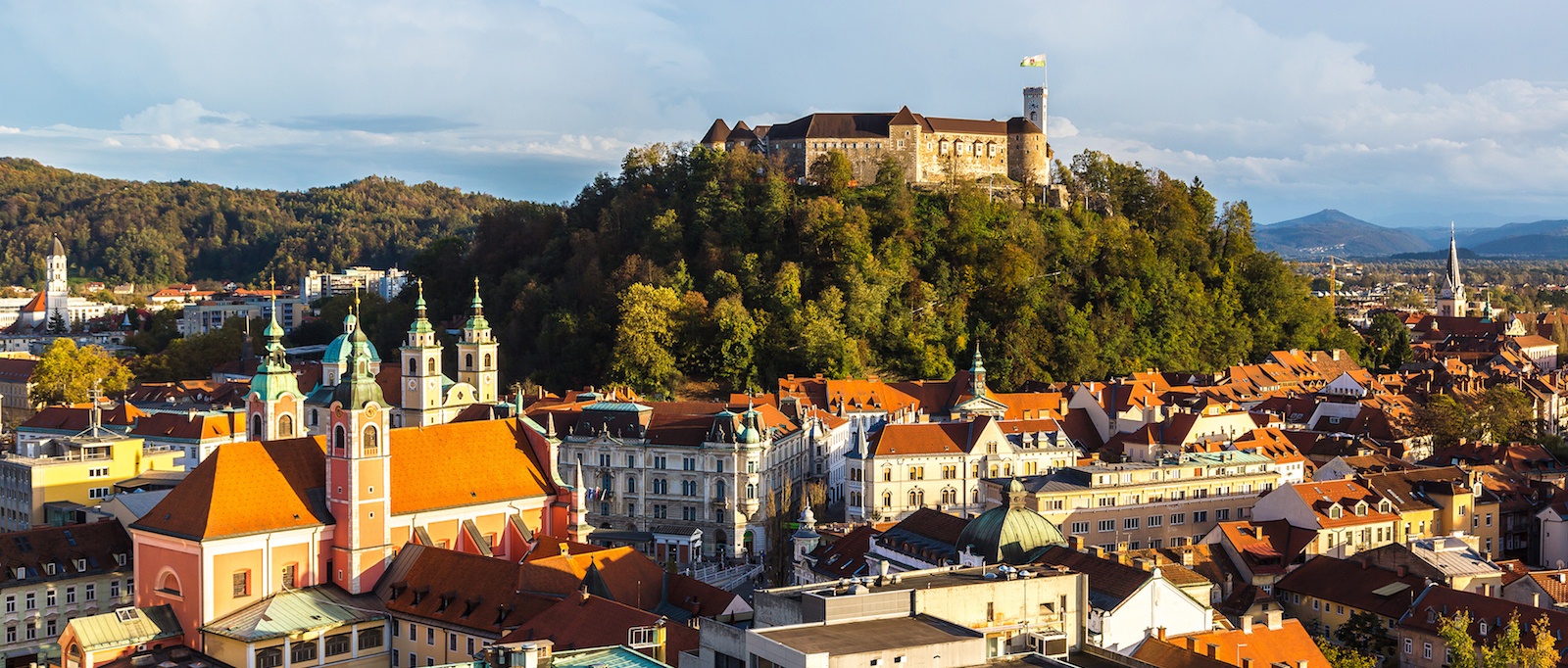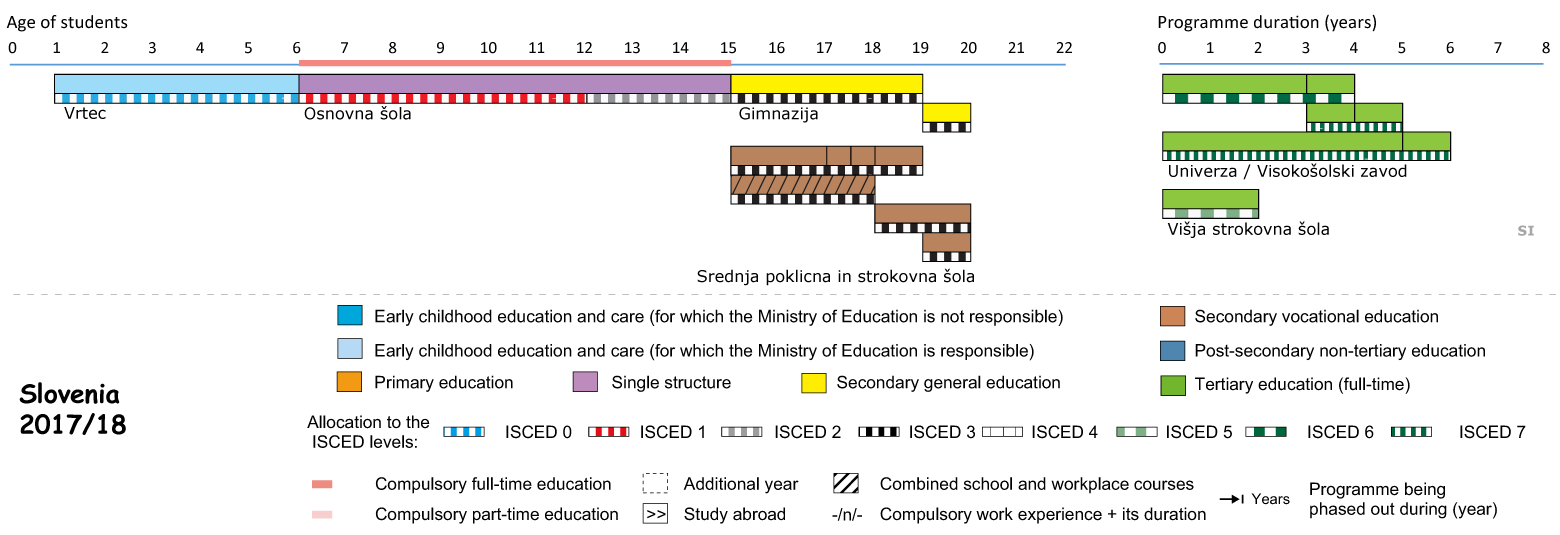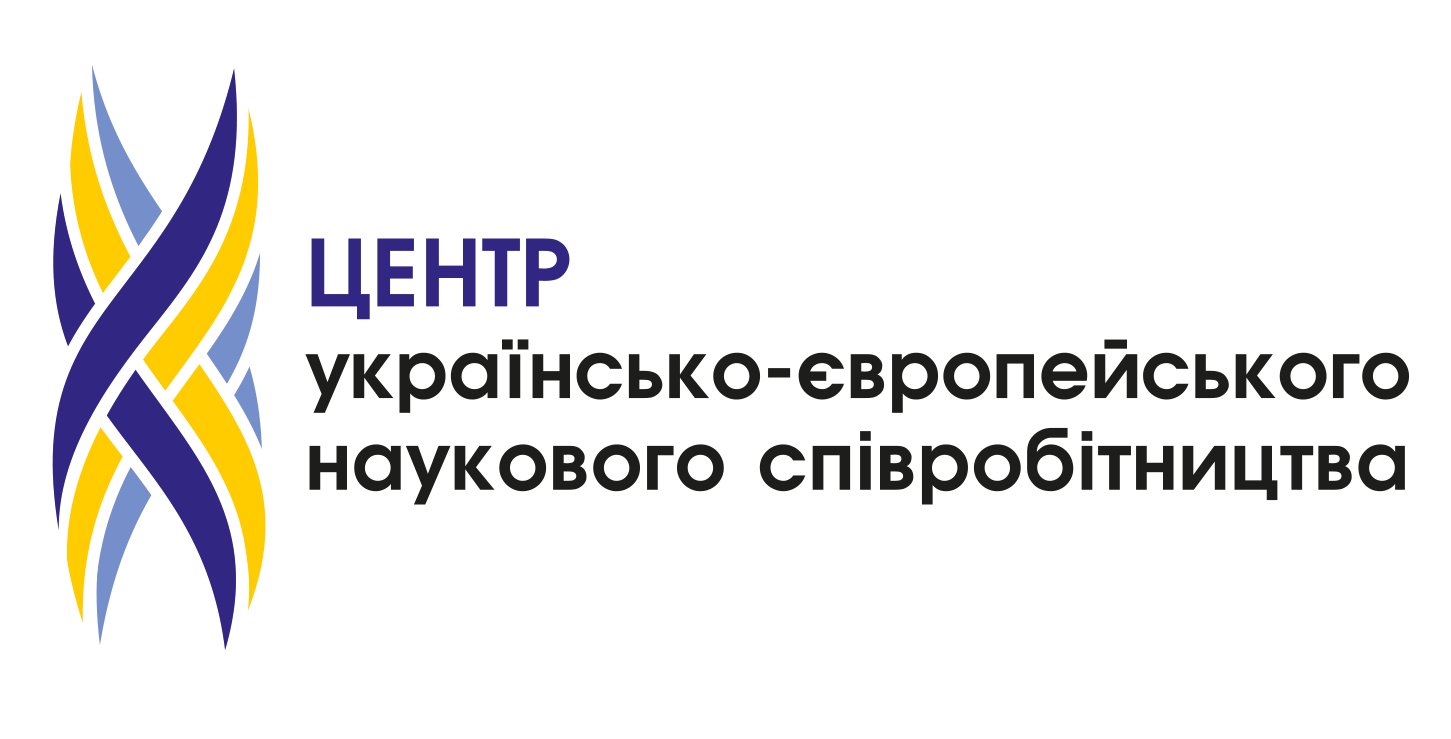 Key features of the education system
Key features of the education system
Governance
The education system of the Republic of Slovenia is organised as a public service rendered by public and private institutions that provide officially recognized or accredited programmes.
By law, public schools are secular and the school space is autonomous.
The state acts as founder of public:
- upper secondary schools
- short cycle higher education colleges
- higher education institutions
- educational institutions for SEN children
- residence halls for students, as well as
- supporting professional institutes in education.
The municipality acts as founder of public:
- kindergartens
- basic schools (single structure primary and lower secondary education)
- residence halls for pupils
- music schools, and
- adult education organisations.
Public institutions are state controlled by appointment of representatives to governance bodies, public funding, salary system, adoption of common rules and guidelines of public service, centrally adopted curricula, etc. The providers of public service are under supervision of the school inspectorate.
The governance body of public kindergartens and schools is the council and the management body is the head teacher, who is also a pedagogical leader. Teachers enjoy professional autonomy and the head teacher has the autonomy in accordance with requirements to employ teachers of own choice.
As specified by the Constitution of the Republic of Slovenia (en), there is a guarantee of freedom of choice in education and autonomy of higher education institutions.
Organisation and structures
Minority provision
The language of instruction is Slovenian. Members of the Italian and Hungarian national communities in ethnically mixed areas have the right to education in their respective language. The Constitution also protects the status and gives special rights to members of the Roma community.
Legal entitlement to pre-school education
Children in Slovenia are legally entitled to a place in a kindergarten (vrtec) from the age of 11 months (end of childcare leave) to the age of compulsory schooling. The steering document of public pre-school education is the kindregarten curriculum (en).
Extended basic school programme
All basic schools have to provide free of charge non-compulsory activities of the extended programme, namely remedial and supplementary lessons, extracurricular interest activities, non-compulsory optional subjects, as well as morning care (grade 1) and after-school classes (grades 1 to 5). A wide majority of pupils attends the activities. The programme is provided by qualified teachers in line with officially adopted educational guidelines and concepts.
National assessment
At the end of grades 6 and 9, pupils undertake compulsory national assessment in three subjects. The main objective is to improve the quality of teaching and learning, thereby also ensuring a higher quality of knowledge and competences of pupils. Results do not influence the marks or have any immediate impact on the educational path of pupils. The future status and impact of the national assessment is currently under debate.
Music Education
A well-developed network of publicly funded music schools provide music and ballet lessons to enthusiastic pupils who in turn do not have to take one of two compulsory optional subjects.
Inclusive approach for SEN children
The provision of special needs education in Slovenia embraces the multi-track approach to inclusion: kindergartens and schools tend to children with special needs by way of inclusion and special classes, and there are special education institutions, as well.
Late Tracking
Tracking of students begins in upper secondary education, typically at the age of 15. Students may choose freely among general and vocational programmes. If the number of candidates exceed the number of places, schools may limit enrolment in the first Year.
High Stakes exams at the end of upper secondary education
At the end of upper secondary education, students take final exams. In two and three year vocational programmes, student complete their studies with a school leaving examination. At successfully completing the end of upper secondary general and technical education programme, students take general matura or vocational matura. Matura is a national external examination. Students who pass matura may enroll in tertiary study programmes.
Officially recognised informal adult education programmes
There is considerable diversity of adult education programmes and institutions. Beside formal programmes, there are also officially recognized informal programmes targeted at special groups of adults, in particular those who need to improve their basic competences or literacy skills or who are trying to integrate in society and need help.
Tertiary education
In Slovenia, almost half of all people aged 19 to 24 is enrolled in tertiary education. Majority of them (85% in 2015/16) are full-time students and do not pay tuition fees. The public agency for quality assurance in higher education (SQAA) was founded in 2009 and Registered in the European Register of Quality Assurance Agencies in Higher Education (EQUAR) in 2013. SQAA is a part of European system of quality assurance in higher education since 2013, its roles include accreditation of higher education institutions and study programmes and external evaluation of higher education institutions and study programmes.
Challenges
Early school leaving is a rare phenomenon in Slovenia, with 5% of early school leavers in 2015, the second best result in EU. Nevertheless, the share of early school leavers among foreign-born children has been considerably higher (16.5%).
Low literacy scores (24.9% below level 2,) of adults in PIAAC are well below the sought after level of literacy. The younger generations scored relatively better.
Employment rates of recent graduates (3 years after graduation) have been on a decline from 2011 to 2014 (70.1% for ISCED 3–8) and below EU average of 76.1%.
Teaching profession
Education staff at kindergartens and schools have to hold relevant educational qualification (ISCED 6 for pre-school teachers and certain teachers of practical subjects in VET, ISCED 7 other teachers), relevant pedagogical educational qualification and they have to pass the state professional examination for education staff.
Continuous professional development is a right and a duty for all educational staff and attending programmes of CPD is a prerequisite for promotion to professional titles (Mentor, Advisor and Councilor).
Stages of the Education System
The Slovenian education system is organised into several levels of education:
Pre-school education
Pre-school education (predšolska vzgoja) is optional, and encompasses the centre-based early general pre-school education and care. Children can enrol as early as at the age of 11 months and attend it until they start basic school.
Compulsory basic education
Compulsory basic education (obvezno osnovnošolsko izobraževanje) is organized in a single-structure nine-year basic school attended by pupils aged 6 to 15 years.
Upper secondary education
Upper secondary education (srednješolsko izobraževanje) takes 2 to 5 years (typical age of students: 15-19). Educational programmes include vocational, professional and gimnazija (general) programmes.
Tertiary education
Tertiary education (terciarno izobraževanje) includes short-cycle higher vocational education (višje strokovno izobraževanje) and higher education (visokošolsko izobraževanje) study programmes. First cycle higher education programmes encompass professional and academic study programmes (typical age of students: 19-22). Short-cycle higher vocational education is provided by higher vocational colleges that offer two-year vocational education (typical age of students: 19-21). The first, second and third cycle study programmes are offered by public or private universities and single higher education institutions.
Adult education
Adult education (izobraževanje odraslih) is marked by its considerable diversity of programmes and institutions.
Structure of the National Education System
Resource: https://eacea.ec.europa.eu/national-policies/eurydice/content/slovenia_en









